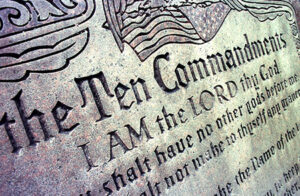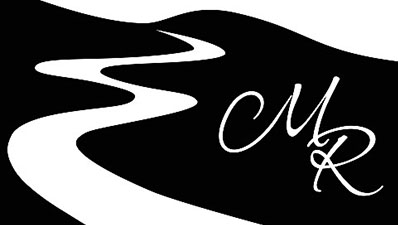
One of the many phrases repeatedly trumpeted by so-called political and religious “progressives” is that the US Constitution clearly defines an absolute separation between church and state. Historians attribute that verbiage to Thomas Jefferson, among others. However, that specific phrase is conspicuous by its absence within the Constitution and the Bill of Rights.
As with all high-quality deceptions, their claim does have an element of truth to it. The “Establishment Clause,” coupled with the “Free Exercise Clause,” both found in the First Amendment of the Bill of Rights, collectively define what we United States citizens call our constitutional right to freedom of religion. Here’s how they both read:
Congress shall make no law respecting an establishment of religion, or prohibiting the free exercise thereof…
As we have just read, the Establishment Clause prohibits our federal government and, by later extension, the regional governments of all US states and territories, from establishing/sponsoring any form of religion -OR- placing any limits on our right to worship if, when, where, with whom, and how we please. Please also note how the Free Exercise clause includes zero language giving our government any purview to limit our religious beliefs, speech, or activity to those which it deems socially acceptable or culturally appropriate using whatever criteria it may invent.
That’s the truth part. The lie portion is their loud proclamations that the Body of Christ has zero say in the business of government. This is founded upon yet another deception, that of pietism, which divides the affairs of men into “secular” and “sacred” arenas and firmly believes the two should never overlap.
The Problem with State Churches
Our founding fathers had a legitimate fear of European-style state churches well-founded upon historical precedent.
Roman Catholicism
By the time our country was founded, the Vatican’s perfidious meddling in European political affairs had gone on for well over a millennia. Reverberations of its corrupt influence still exist within the laws of several nations to this day, most notably Italy, the Philippines, and other countries self-identifying as Catholic.
Even as the US Constitutional Convention was in session, the nascent French Revolution was already beginning to take form. Ultimately, its populace rebelled not only against their clueless monarchy, but also the Catholic Church which had controlled the country through its puppet rulers, all to its own devious ends. That horrendous bloodbath began just as the US Constitution was being ratified in 1789 and didn’t end until the end of the Napoleon’s reign in 1815. Its resulting Reign of Terror cost the lives of tens of thousands of people throughout the country, not to mention the roughly 5 million lives tragically lost on all sides during the Napoleonic Wars.
Protestant State Churches
Protestantism has not been exempt from this problem. All the non-Catholic countries of Europe also have their own state churches. All of them were founded by none other than the reformers themselves, most notably Luther, Calvin, and Knox. Because they were so conditioned by the state-church paradigm launched by Emperor Theodosius millennia before, it never occurred to them to look back to the New Testament as the only legitimate model for how their new Protestant churches should look and operate.
The primary problem the American colonists had experienced with such organizations reared its ugly head as the Anglican Church aka the Church of England. Point of fact: whoever is the reigning king or queen of the United Kingdom at any given time is also the head of the Church of England, its “pope” if you will. This is why one of the British monarch’s many titles is “Defender of the Faith.” That being said, the Archbishop of Canterbury has been delegated authority to police Anglican faith and practice. The Church of England was very much a propaganda instrument of the English crown leading up to and during the American Revolution; Anglican priests denounced our bid for freedom at every opportunity from pulpits on both sides of the Atlantic.
On top of all that, there was also the disastrous aftermath of Oliver Cromwell and the First English Civil War in the 1640s to further reinforce the idea that any flavor of theocracy and/or state church was inherently and terminally flawed on its face. The Puritan rule established after that conflict became so oppressive, the British monarchy and the Church of England were restored to their former primacy after a brief period of only 20 years or so.
Regardless of what doctrinal flavor of European state church you may care to pick, all of them remain spiritually bankrupt to this day. Both attendance and donations have always been — and remain to this day — abysmally low. Those empty European churches portrayed in movies and television series are their true reality. The only reason any of them can keep their doors open is because their buildings and clergy are propped up by unpopular taxes collected from the populace by their respective governments. As I have said elsewhere, they are spiritual tombs housed in some amazingly beautiful buildings.
How All That Impacted the Constitution
The highly educated framers of the US Constitution were astute students of history and had also witnessed the corruption of European state churches first-hand. They also had more recent examples from the several attempts at state-run churches and theocracies made during the early days of the American colonies, all which had been equally abject failures. Many of the early colonists had actually fled Europe to escape the persecution they had experienced from state churches of their respective countries of origin, the Puritans of the Massachusetts Bay Colony fleeing the repression of the Church of England being but one example.
Regardless of their personal religious persuasions or lack thereof, all of this history did nothing but reinforce the framers distrust of state churches. They knew full well the corrupt agendas of unscrupulous men could and would bend an American state church to their selfish ends, whether those governing it completely bought into the core tenets of Christianity or not. That state church could then be wielded to steal away the liberty we had so recently won at such a horrendous cost from the British.
All that is why they included the Establishment and Free Exercise Clauses into the supreme governing document of our country.
I also want to point out that absolutely nowhere in the Bill of Rights does it ever define or limit our behavior or rights as citizens; instead it recognizes and enshrines our pre-existing human rights as well as proscribing certain behaviors by the government.
Why I Wrote All This
 A couple of days ago, I read a blog article linked by a clergy coaching group I belong to on FaceBook. That article, a screed of woke rhetoric masquerading as Christianity, denounced the recent legislation passed by Louisiana legislature that the 10 Commandments should be prominently posted in all public school classrooms within their state. The author went on to claim the Beatitudes from Jesus’ Sermon on the Mount would have been far more suitable. Quite a few of the commenters agreed with the article. Here is my response:
A couple of days ago, I read a blog article linked by a clergy coaching group I belong to on FaceBook. That article, a screed of woke rhetoric masquerading as Christianity, denounced the recent legislation passed by Louisiana legislature that the 10 Commandments should be prominently posted in all public school classrooms within their state. The author went on to claim the Beatitudes from Jesus’ Sermon on the Mount would have been far more suitable. Quite a few of the commenters agreed with the article. Here is my response:
The 10 Commandments are carved onto the wall of the US Supreme Court chambers, but it’s somehow bad to put them in schools?
Yes, Jesus said the greatest commandments are to love God and one another. That summarizes the 10 commandments, not replaces them. The first 4 tell us what loving God looks like, the last 6 describe the bare minimum of what loving our fellow man looks like.
This is Basic Morality 101. It was what differentiated the Jews from all the other pagan nations around them. Tragically, as secular humanist thought has supplanted the Christianity upon which Western Civilization was founded and now that Christendom has bought into those lies hook line and sinker, it remains that same clear distinction to this day.
Grace doesn’t abrogate God’s standards, it both empowers us to live them and provides a place of forgiveness when we inevitably fail at that endeavor.
Bible-based morality has been tragically missing from our public schools and we have been paying the incredibly steep cost ever since. Apart from God’s Word, morality is reduced to mere personal opinion.
The issue at hand isn’t about Christian Nationalism or a theocracy or legalism, it’s about putting front and center into the minds of our children the essential truth that there is a God in heaven, He expects certain kinds of behavior from those He created in His image and likeness, and we will render an account before His throne for how well we did when we are finished with life on this earth.
Here’s the problem with using the Beatitudes instead of the 10 Commandments: the Beatitudes have been suborned by religious and political liberals for years now. Yes, they are indeed the Word of God spoken by our Lord and Savior Himself. That being given, it is exceedingly easy for the woke to sanitize His sermon of its so-called “religious” trappings, reducing it to mere philosophical words of wisdom uttered by their fraudulent concept of Jesus as a 100%-human-and-0%-God good teacher and nothing more, thus making His Words palatable to unbelievers.
After all, the word “blessed” in that passage literally means “to be happy” and who could possibly object to that? Besides, the pursuit of happiness is one of our “inalienable human rights” as defined in the Declaration of Independence, so happiness is our national birthright! (oh yes, indeedy, my sarcasm is intentional! 😀)
On the other hand, the 10 Commandments leave no wiggle-room for all who look upon them. That list contains God’s commands to worship only Him and love other people, all expressed in tangible ways which can be measured by observable behavior. They are simple, straight-forward, clearly expressed, and completely unambiguous, exactly the kind of counter-pop-culture list which should appear on a wall where impressionable children are receiving their basic education.
And by the way, its presence implies no demand that the children adhere to any creed, whether Jewish, Catholic, or Protestant. Indeed, those commandments are not how we get to heaven, but they do define the bare minimum of what it means to be submitted to our Creator.
Bravo, Louisiana, bravo!
Thanks for reading!


Now only if other States would follow Louisiana’s lead.